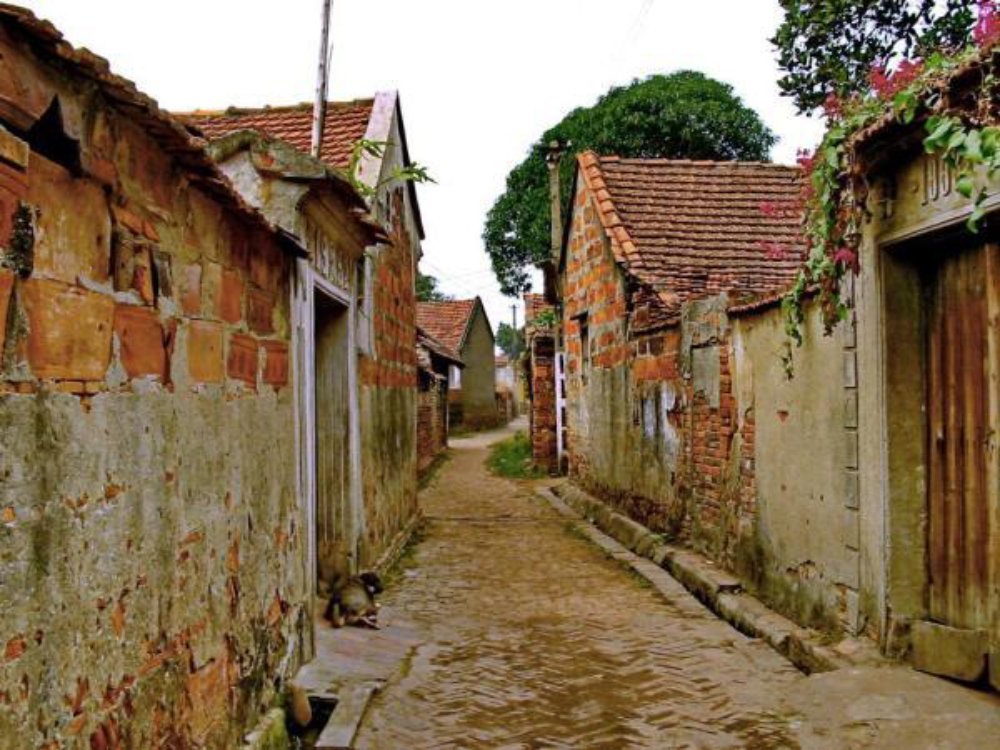SDGs & sustainable socioecological systems - fundamental tensions?
Authors: Graham Long & Anh Vu
An old village in Vinh Phuc province in Red River Delta. Source: huongcanh.wordpress.com
An assumed synergy between sustainable futures for deltas as socio-ecological systems, and the SDGs as a framework for those futures, is posited in much recent research on deltas. It could also be said to be coded into the DNA of the Living Deltas Hub itself - so that we sometimes use these ideas of sustainable delta futures, and SDG localisation to deltas or SDG realisation in deltas, interchangeably. However, this blog asks whether alignment between the SDGs and what we might call the delta social-ecological system (SES) approach can be taken for granted.
There is, to be sure, a degree of alignment between the SES approach and the SDGs. The targets of the SDGs are clearly relevant to deltas and delta dwellers, and the interlinked SDG framework that focuses on environmental as well as social and economic challenges is well-placed to accommodate the close inter-relationships of these socio-ecological systems.
But the focus on system-level change and the level of individual interaction in the literature on Delta SES might also be a point of tension with the SDGs. The SES- focused delta science works look at attributes of these systems – notably, system level dynamics, tipping points, and the nexus between social and ecological elements. The SDGs, it seems, have a more explicit normative framework that places value on the wellbeing of human individuals as well as species and ecosystems. Importantly, the SDGs offer no detailed model of how the value of individuals and ecosystems are connected – it might be, here, that the delta SES research has something important to teach the SDGs.
This deliberative component means that what to measure, and what to do, about delta sustainability cannot be wholly determined by the SDG framework itself. By emphasising the mediating role of stakeholder participation in localising the SDGs for deltas, the processes and spaces in which these questions are addressed become a vital arena for proposing and contesting visions for sustainable delta futures.
Conversely, the SDGs have a focus on inequality, disadvantage and rights within the social sphere that might appear alien to an SES approach that recognises spatial differences, but has tended not to theorise inequity within the social domain as thoroughly.
In another difference, the SDGs place normative value on broad and inclusive participation and deliberation - reflecting a specific dimension of what it is to value individuals, but also the political circumstances of their design. This, then, becomes an important step in the procedure for determining delta challenges and futures. From an SDG perspective, the precise vision of a sustainable delta future, and the priorities and starting point in addressing delta challenges, will be whatever stakeholders – and centrally, delta dwellers - decide them to be.
On the riverbank of Dumuria fishing village, Gabura Union, GBM-B. A woman is drying leaves from the mangrove used as firewood. Boats are getting ready for the next trip to the Sundarbans. Photo by: Emilie Cremin
To identify points of difference, or different ways in which the SDG and SES frameworks might relate, is not to suggest that either is inferior or in-and-of-itself incomplete. Nevertheless, there are contrasts in approach and focus between the SDGs and the literature on delta SES that merit investigation by the different subgroups within Work Package 5. These investigations might have three possible outcomes.
First, it could be that any apparent contrasts in focus and approach will ultimately be reconciled through closer examination and more detailed scholarship.
Second, it might be that there are differences here that lead to genuine divergence in practical recommendations and outcomes. For example, both perspectives might identify the same trade-offs between economic and environmental objectives, but could still take different approaches to the relative ‘weighting’ of the elements involved, and so resolve them differently.
Third, these abstract, theoretical concerns could fade into the background when it comes to what to measure, and what recommendations might arise for wider review and monitoring regimes – two of the key concerns for the Hub’s Work Package 5. Where there is enough common ground in practice, there might be no need to press too hard to discover alignment or misalignment.
This, then, is a key question for the monitoring and review subgroup within Work Package 5 over the coming year – whether the SDGs and the literature on sustainable delta futures can be distilled into a single list of common themes and objectives against which monitoring and review processes can be assessed.








